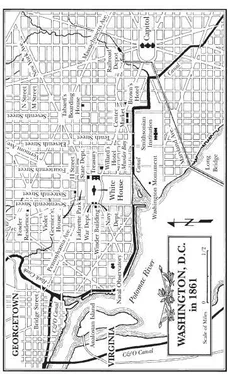John Miller - The First Assassin
Здесь есть возможность читать онлайн «John Miller - The First Assassin» весь текст электронной книги совершенно бесплатно (целиком полную версию без сокращений). В некоторых случаях можно слушать аудио, скачать через торрент в формате fb2 и присутствует краткое содержание. Жанр: Исторический детектив, на английском языке. Описание произведения, (предисловие) а так же отзывы посетителей доступны на портале библиотеки ЛибКат.
- Название:The First Assassin
- Автор:
- Жанр:
- Год:неизвестен
- ISBN:нет данных
- Рейтинг книги:3 / 5. Голосов: 1
-
Избранное:Добавить в избранное
- Отзывы:
-
Ваша оценка:
- 60
- 1
- 2
- 3
- 4
- 5
The First Assassin: краткое содержание, описание и аннотация
Предлагаем к чтению аннотацию, описание, краткое содержание или предисловие (зависит от того, что написал сам автор книги «The First Assassin»). Если вы не нашли необходимую информацию о книге — напишите в комментариях, мы постараемся отыскать её.
The First Assassin — читать онлайн бесплатно полную книгу (весь текст) целиком
Ниже представлен текст книги, разбитый по страницам. Система сохранения места последней прочитанной страницы, позволяет с удобством читать онлайн бесплатно книгу «The First Assassin», без необходимости каждый раз заново искать на чём Вы остановились. Поставьте закладку, и сможете в любой момент перейти на страницу, на которой закончили чтение.
Интервал:
Закладка:
Lucius paused in front of a portrait hanging above the mantle in the dining room. The picture showed Bennett sitting in a chair, with one son on either side. The boys must have been ten or twelve years old when it was painted. Lucius remembered when they sat for the artist, and how hard it had been to keep them still for more than a few minutes at a time. Bennett had a warm look of satisfaction on his face-something Lucius had not seen much since the boys’ death in Kansas.
That was the real reason the Bennett home seemed so lonely. Most plantations had large clans of white folks living on them. There were sometimes three or even four generations’ worth, and lots of visiting relatives besides. Children were almost always around too. Whenever Lucius accompanied Bennett on a social call to another plantation, he never failed to notice how the white kids and slave kids played indiscriminately. It had been that way on the Bennett farm as well, when Bennett’s boys were growing up. But there came an age when the white folks insisted that the play stop, usually around the time the slave children could start performing useful chores. Before that moment, though, these kids were innocent of what separated them. This was one of the things that prevented Lucius from hating white people-he thought they were not born bad, but made bad.
The other thing, of course, was his relationship with Bennett, however much slavery stained it. When he told Portia that he could not do what he was asking her to do, he only told part of the truth. He was certainly too old to attempt any kind of escape. But neither could he envision life away from Bennett. The very idea of it was inconceivable. Where would he go? What would he do? Slavery was not something he enjoyed, but he frankly could not imagine improving his lot. For Portia and his other grandchildren, of course, the matter was entirely different. They had many years to live, and he wanted freedom for them.
He remembered the night Lincoln was elected, and all of Bennett’s bitter cursing. For months he had listened to Bennett lecture on the horror of Lincoln, and he realized during one of these little speeches that this politician from the North represented hope. Lincoln was the subject of much whispered talk in the plantation fields and anywhere else black people gathered away from white ears. Nobody knew very much about him, but many, like Nelly, had come to view him as a savior. Lucius was not comfortable going that far, though he did suspect that if the plantation owners hated Lincoln, then he was probably someone to like. It was this half-formed conviction that inspired Lucius to send Portia on her journey.
He wondered where she was at that very instant. Had she hidden in the woods now that the sun was coming up? Would she try to sleep? What would they do with the horses?
Lucius stepped from the dining room to the foyer, opened the front door, and walked onto the front porch. The sky was clear of clouds. The first slaves were already in the fields, with more on their way. He heard Tate issue instructions to a group of young men in the distance. Hammers clanged in the direction of the blacksmith’s shop. Smoke billowed from the kitchen chimney. Then he looked down the long lane to the main road. This was the path Portia and Joe had traveled just hours before, and the last place he had seen them. They had left at a trot. Lucius recalled his final view of Portia, how she turned around and waved to him just before slipping into the darkness. He closed his eyes and remembered the image.
“Good morning.”
Lucius nearly fell off the porch at the sound of Bennett’s voice.
“I didn’t mean to startle you, Lucius,” said his master.
“Sorry, sir. I didn’t hear you.”
“What are you looking at? I’ve been watching you from behind for a couple of minutes.”
“Oh, nothing. It’s just a nice day.”
“Indeed it is!” said Bennett. He joined Lucius at gazing into the distance. “I was thinking that later this morning you would join me on a little expedition to the slave quarters. We need to distribute the new clothes we brought from Charleston. I haven’t been down there in months. It will be good to do some visiting. I can’t be a stranger on my own plantation, after all.”
“No, sir,” said Lucius.
Bennett tapped him on the shoulder and smiled. “And I can’t wait to see your granddaughter.”
As Rook passed through the front door of Brown’s, he tried to remember the last time he had dressed out of uniform. It had been at least a month, since before the inauguration. It felt awkward. On the walk to the hotel, he had hoped that none of his fellow officers would spot him. He did not want to have to explain himself to Scott.
A lunchtime crowd filled the lobby. Rook moved away from the door and toward a wall, where he would not call attention to himself. He scanned the lobby for Clark. The corporal was seated in a chair by a column and looking straight at him. Rook nodded slightly and then left through the front door. He crossed Sixth Street and stood on the brick pavement outside the National. From this vantage point, he could watch the entrance to Brown’s and try to blend in with the loiterers on the sidewalk. It was harder than he had anticipated. Most of the people standing around him were slaves, waiting for their owners to finish their business inside. But not all of them were, and Rook was glad not to draw any suspicious glances. After about five minutes, Clark emerged from the hotel.
“Any sign of our friends yet?” asked Rook in a low voice.
“Davis is down here right now. Stephens will show up soon.”
After about thirty minutes, the Southerners exited Brown’s. Davis was big and tall, with black hair, dark eyes, and skin tanned from hours in the sun. Stephens was his opposite: short, scrawny, fair-haired, and ruddy. On Pennsylvania Avenue, they headed southeast. Rook and Clark followed about fifty feet behind. The tailing was easy. Davis and Stephens made no attempt to see if anybody was tracking them.
“It looks like they know where they’re going,” said Clark as they approached Second Street.
“Right for the Capitol,” said Rook.
As they left the commercial stretch of the Avenue, Rook and Clark were able to drop back a bit further and still keep Davis and Stephens in sight. The Capitol did not appear much changed since the inauguration. Rook wondered if any work had been done on it at all. As they circled around to the east side of the building, the colonel noticed the grounds were still a mess, littered with piles of coal and wood, marble blocks, and columns in various states of assembly. Several statues stood amid the clutter, waiting for someone to put them inside the unfinished building. One was a big sculpture of George Washington that made the first president look like a Roman general.
When Davis and Stephens reached the wide steps on the eastern front of the building, they paused. A handful of soldiers sat near the top smoking pipes. They did not appear to be on duty. Rook assumed that because they were new to the city, they would not recognize him.
The two Southerners seemed uncertain about what to do. They exchanged a few words and looked around. As Rook and Clark approached the foot of the steps, Davis and Stephens began to climb them. At the summit, they turned around to take in the view.
Rook raised his hand to his mouth so nobody could read his lips. “Keep moving forward,” he said.
He and Clark walked past the stairs. Now their backs were to Davis and Stephens. If the Southerners were testing them, turning around would blow their cover. If they kept walking, however, they might lose their quarry for good. Rook knew he had to make a decision. He casually stuck his hand in a pocket and found a penny.
All of a sudden, he halted and bent over. “Look at this,” he said, trying to sound surprised as he touched the ground. He made a great show of holding up the penny, as if he wanted to study its design in the light. From the corner of his eye he was able to see the top of the steps. He could see the soldiers, but not Davis and Stephens. Rook and Clark raced up the steps, taking two at a time. “This isn’t going to be easy indoors,” said Rook when they arrived at the top.
Читать дальшеИнтервал:
Закладка:
Похожие книги на «The First Assassin»
Представляем Вашему вниманию похожие книги на «The First Assassin» списком для выбора. Мы отобрали схожую по названию и смыслу литературу в надежде предоставить читателям больше вариантов отыскать новые, интересные, ещё непрочитанные произведения.
Обсуждение, отзывы о книге «The First Assassin» и просто собственные мнения читателей. Оставьте ваши комментарии, напишите, что Вы думаете о произведении, его смысле или главных героях. Укажите что конкретно понравилось, а что нет, и почему Вы так считаете.












